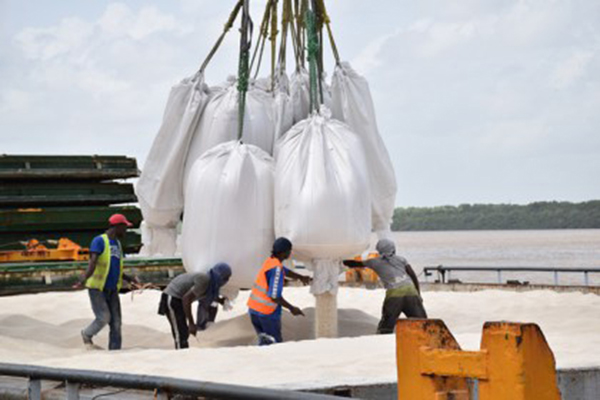A protracted outstanding multi-million dollar debt owing to Guyana by the Government of Panama for rice sold to the country through the local Guyana Rice Development Board (GRDB) has now reached the level of the International Chamber in The Hague, according to Attorney General Anil Nandlall. The debt, which goes back to export contracts signed back in 2018 and 2019, remains outstanding despite efforts being made over those years to recover the amounts owed for rice delivered to that country.
While Guyana’s rice sector continues to make a noteworthy contribution to supporting food security in other countries, in both the region and the wider hemisphere, both the state-run Guyana Rice Board as well as local rice farmers have previously expressed dissatisfaction over the gaps between the delivery of rice cargoes to receiving countries and payments for those shipments. Some farmers, having encountered logistical difficulties in engaging overseas creditors, have looked to the government, through the GRDB, to help them have these debts settled.
In a statement that typifies the cut and thrust of political behaviour in Guyana, Nandlall, is quoted as citing the previous political administration for leaving, “US7.1M along with interest… abandoned in Panama,” leaving the incumbent political administration saddled with “the responsibility of taking the necessary recourse to recover these monies on behalf of our rice farmers.” A report in a section of the media has also quoted the Attorney General as saying that “monies have to be expended to retain international lawyers to prosecute and defend these claims…”.
Challenges associated with recovering monies for debts incurred by buyers of rice from Guyana are not unique to the GRDB. This newspaper has, in the past, spoken extensively with the Berbice Rice Miller, Nand Persaud & Company, over outstanding payments for rice exports. Back in 2017, the local rice milling company signed an agreement with the Cuban state-owned rice milling company, ALIMPORT, under which Cuba received consignments of rice from the Berbice company. This newspaper, which has been following the matter closely over the years, has had extended engagements with the company’s Chief Executive Officer, Mohindra Persaud, regarding the company’s efforts to recover monies owed for shipments of rice to Cuba.
In pursuit of payments, totaling several millions of dollars, Persaud visited Cuba but has had to return home empty-handed. The Berbice businessman is on record as telling this newspaper that “many letters and calls” as well as engagements with the Cuban Ambassador in Georgetown and Guyana’s Ambassador in Cuba failed to realize payments. Back in January, Berbice Rice Millers had raised some of the various challenges facing them in pursuit of their rice export operations, though it is unclear whether payments for rice exports was one of those.
During the negotiations linked to securing payments from Cuba, Persaud had told Stabroek Business that other agreements had been signed with AlIMPORT with regard to a schedule for payments though it is unclear whether those measures had succeeded in unlocking any payments. Persaud told Stabroek Business that during a visit to Cuba, a formal agreement had been reached with AlIMPORT that Cuba would pay US$200,000, representing the actual cost of the rice and shipping costs but that interest on the outstanding amount as well as profits accruing to Nand Persaud would be waived. However, since then there has been no movement on the payment, Persaud said.
The company has since declined requests from Cuba for more rice purchase agreements, indicating that it was not prepared to do so until the debt due on the 2017 shipment had been liquidated.






